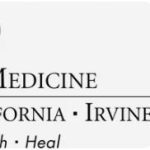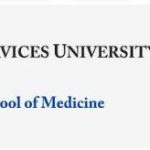Tulane University School of Medicine was founded in 1834 as the Medical College of Louisiana. Initially, it was located in downtown New Orleans but moved to its current location on Tulane Avenue in 1905. The school has a long history of providing medical education and training to students from all over the world. In addition to its traditional medical school curriculum, it has developed a number of innovative programs such as the Tulane-Xavier Center for Bioinformatics and Genomics, the Tulane Center for Clinical Research, and the Tulane Center for Global Health. The school also offers a wide range of degree programs such as MD, PhD, MPH, MS, and DSc. It is renowned for its research activities in areas such as infectious diseases, cancer biology, cardiovascular disease prevention and health policy. In recent years, the school has become increasingly focused on global health initiatives and has launched several initiatives aimed at improving healthcare delivery in underserved communities around the world. Through these initiatives, Tulane School of Medicine is helping to shape the future of healthcare in both local and global contexts.
Tulane University, abbreviated as TU, is one of the top-ranked U.S. medical schools located in New Orleans, LA. Keep reading to see admissions application information including average GRE scores, admissions selection factors and dual degree programs of Tulane University.
1430 Tulane Avenue, SL67
New Orleans, LA 70112-2699
(504) 988-5331
Admissions E-mail: medsch@tulane.edu
Web site: http://www.mcl.tulane.edu
Fall 2008 Admissions Information
AMCAS application accepted? Yes
Earliest application date: 06/01
Application deadline: 01/15
Oldest MCAT considered: 2005
Application fee: $95
Director of admissions: Dr. Marc J. Kahn
Does this school ask for a secondary application as part of the admissions process? Yes
This school requires undergraduate work in these subjects in order to apply: biology, English, organic chemistry, inorganic (general) chemistry, physics, general chemistry
Is a personal interview required for admission? Yes
Are interviews conducted at the medical school? Yes
Acceptance notice to regular application for the 2007-2008 first-year class:
-Earliest date: October 15
-Latest date: August 1
Applicant’s response to acceptance offer for the 2007-2008 first-year class:
-Maximum time in weeks: 2 weeks
-Does the school consider requests for deferred entrance? Yes
-Deposit to hold place in class: $500
-Deposit due: May 15
-Deposit refundable prior to: May 15
-Starting month for the class of 2007-2008: August
Early Decision Plan application period for the 2007-2008 first-year class:
-Does the school have an Early Decision Plan (EDP)? Yes
-EDP application period begins: June 1
-EDP application period ends: September 15
-EDP applicants notified by: October 1
Fall 2005 Admissions Statistics
Tulane University School of Medicine is one of the most prestigious medical schools in the United States. It has an acceptance rate of 5.3%, meaning that only 5.3% of applicants are accepted into the school each year. The average GPA for incoming students is 3.8 and the average MCAT score is 512, placing Tulane among some of the most selective medical schools in the country. In terms of diversity, Tulane ranks highly among its peers with over 50% of its incoming class being comprised of underrepresented minorities. Additionally, Tulane has a number of initiatives designed to help increase access to medical education for underrepresented minority students such as their Urban Health Program and their Student Medical Education Program. These programs provide financial support and mentorship opportunities to students from disadvantaged backgrounds who are interested in pursuing a career in medicine.
| Applied | Interviewed | Accepted | Enrolled | |
| Total: | 7,222 | 1,164 | 374 | 165 |
| In-state: | 545 | 141 | 78 | 47 |
| Out-of-state: | 6,677 | 1,023 | 296 | 118 |
| Women: | 3,402 | 546 | 176 | 71 |
| Minorities: | 2,303 | 84 | 79 | 51 |
| International: | 454 | 12 | 11 | 6 |
Acceptance rate: 5.2%
GPA
Average undergraduate GPA: 3.47
MCAT
Overall score (composite): 10.3
Verbal reasoning: 10.0
Physical sciences: 10.0
Biological: 11.0
Writing: P
Undergraduate Majors
Biological sciences (biology, microbiology, zoology, etc.): 43%
Physical sciences (biochemistry, chemistry, engineering, etc.): 16%
Non-sciences (sociology, economics, English, etc.): 37%
Other health professions (nursing, pharmacy, etc.): 1%
Mixed disciplines and other: 3%
|
Combined Degree Programs
Combined degree programs offered: M.D./Ph.D., M.D./M.B.A., M.D./M.P.H., M.D./M.S.
Does the school have a combined college/M.D. program? No
Number of years to complete combined college/M.D. program: N/A
Web site for combined college/M.D. program: N/A
Selection Factors
Details on the policies, preferences, criteria, factors and procedures used in the M.D. admission process:
(Data appear as originally submitted by this school)
All applications are hand screened by the Associate or Assistant Dean for Admissions. Approximately 1000 applicants are invited for interview. Each applicant is interviewed by two faculty members and a student. The admissions committee meets weekly and admissions are granted on a rolling basis. Tulane strives for a class diverse in talents, interests, and background.








